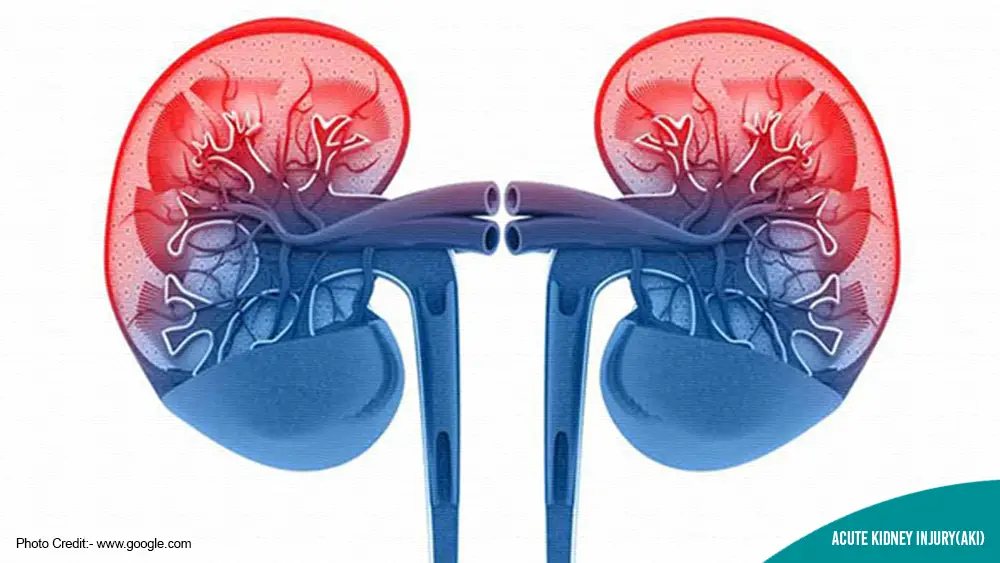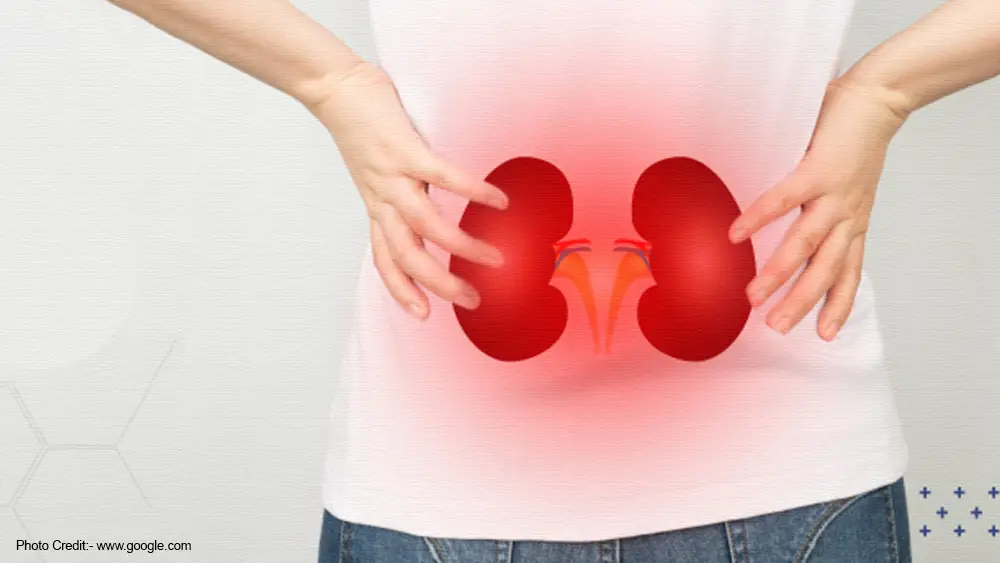
HEALTH BLOG
Acute Kidney Injury(AKI): Causes, Symptoms and Home remedies
-
 Rahul Priydarss
Rahul Priydarss - April 3, 2024
Learn about Acute Kidney Injury (AKI), its causes, symptoms, diagnosis, treatment options, and prevention strategies. Discover the importance of kidney health, common causes of AKI, and how to recognize its symptoms. Explore diagnostic procedures and treatment approaches, including home remedies and Ayurvedic practices. Gain insights into preventing AKI and maintaining kidney health.
Introduction to Acute Kidney Injury (AKI):
Acute Kidney Injury (AKI), formerly known as acute renal failure, is a sudden and often reversible decline in kidney function. It typically manifests as a rapid increase in serum creatinine levels and a reduction in urine output over a period of hours to days. AKI can be caused by various factors, including decreased blood flow to the kidneys (prerenal), direct damage to the kidneys (intrinsic), or obstruction of urine flow (postrenal).
AKI can vary from mild to severe. It can lead to problems like messed-up electrolytes, too much fluid in your body, and a buildup of waste products. In severe cases, it might even cause long-term kidney issues or kidney failure, which might need treatments like dialysis or a kidney transplant. The key is catching AKI early and treating it. This involves finding out why it’s happening, fixing any underlying problems, and giving treatments like fluids and medications to help your kidneys work better. And, of course, it’s important to try to prevent AKI by staying hydrated, avoiding harmful substances, and managing other health issues.

Table of Contents
Aki Meaning Medical:
AKI stands for Acute Kidney Injury in medical terminology. It refers to a sudden and often reversible loss of kidney function, characterized by a rapid increase in serum creatinine levels and a decrease in urine output over a short period of time. AKI can have various causes, including decreased blood flow to the kidneys, direct damage to the kidneys, or obstruction of urine flow. Prompt recognition and treatment of AKI are crucial to prevent further kidney damage and associated complications.
Importance of Kidneys in The Human Body:
Kidneys are two bean-shaped organs about the size of a fist located just below the rib cage, one on each side of the spine. They are vital organs that play a critical role in keeping your body healthy.
Filtration and Waste Removal: The kidneys serve as the body’s primary filtration system, removing waste products and excess fluids from the blood. This process ensures that harmful substances are eliminated from the body through urine, maintaining internal balance and preventing toxin buildup.
Electrolyte Balance: Another crucial function of the kidneys is to regulate the balance of electrolytes, such as sodium, potassium, and calcium, in the bloodstream. By carefully controlling the levels of these electrolytes, the kidneys help ensure proper nerve function, muscle contraction, and overall cellular function.
Blood Pressure Regulation: The kidneys play a key role in regulating blood pressure by adjusting the volume of blood circulating in the body. They achieve this by controlling the amount of fluid retained or excreted as urine. Additionally, the kidneys release hormones that help manage blood pressure levels, contributing to cardiovascular health.
Red Blood Cell Production: Through the release of erythropoietin, a hormone produced in the kidneys, these organs stimulate the bone marrow to produce red blood cells. Red blood cells are essential for carrying oxygen to tissues throughout the body, promoting energy production and overall vitality.
Overall Body Balance: In summary, the kidneys are vital for maintaining the overall balance and health of the body. Without their proper function, waste and toxins would accumulate, electrolyte imbalances could occur, blood pressure might become unregulated, and the body would struggle to produce enough red blood cells. Thus, ensuring the health and proper function of the kidneys is essential for overall well-being and longevity.
Causes of Acute Kidney Injury (AKI):
Acute kidney injury (AKI) can develop from various factors that can be broadly categorized into three main causes.
1. Reduced blood flow to the kidneys: This is the most common cause of AKI. When the kidneys aren’t getting enough blood flow, they can’t filter waste products from the blood effectively. Conditions that can reduce blood flow to the kidneys include.
- Low Blood Pressure (Hypotension) or Shock: Imagine your blood pressure as the water pressure in a hose. If the pressure drops significantly (hypotension), less water (blood) reaches the sprinklers (kidneys), hindering their ability to function. Severe bleeding, dehydration, or severe allergic reactions can cause this pressure drop.
- Blood or Fluid Loss: Excessive vomiting, diarrhea, or burns can lead to significant fluid loss. This depletion reduces the blood volume circulating throughout the body, including the kidneys.
- Heart Problems: A failing heart can’t pump blood effectively, leading to decreased blood flow to all organs, including the kidneys. Similarly, a heart attack or narrowed arteries can restrict blood flow to the kidneys.
- Medications: Certain medications, particularly nonsteroidal anti-inflammatory drugs (NSAIDs) like ibuprofen and some antibiotics, can reduce blood flow to the kidneys, especially if you’re already at risk for AKI. It’s crucial to consult with a healthcare professional about potential risks before taking any medication.
2. Blockage in the urinary tract: When urine flow is blocked, it can back up into the kidneys and damage them. Conditions that can block the urinary tract include.
- Imagine a clogged drain: When urine flow is obstructed, it can back up into the kidneys, causing pressure and damage.
- Kidney Stones: These are hard mineral deposits that form in the kidneys and can lodge in the urinary tract, blocking urine flow.
- Enlarged Prostate: In older men, the prostate gland can enlarge, squeezing the urethra (the tube that carries urine out of the body) and causing a blockage.
- Blood Clots in the Urinary Tract: Blood clots can form anywhere in the urinary tract, blocking urine flow and potentially damaging the kidneys.
3. Direct damage to the kidneys: Certain diseases and conditions can directly damage the kidneys themselves. These include.
- Glomerulonephritis: This is an inflammation of the tiny filters in the kidneys called glomeruli. Imagine tiny filters in a water purification system getting clogged and inflamed; this is what happens in glomerulonephritis.
- Vasculitis: This is an inflammation of blood vessels throughout the body, including those in the kidneys. Inflamed blood vessels can restrict blood flow and damage kidney tissue.
- Interstitial Nephritis: This refers to inflammation of the tissues in the kidneys, which can disrupt their ability to filter waste products.
- Infections: Severe infections can overwhelm the body and potentially damage the kidneys.
- Toxins: Exposure to certain toxins, such as heavy metals or medications, can be toxic to the kidneys and cause damage.
Symptoms and Signs of Acute Kidney Injury:
Acute kidney injury (AKI) can be sneaky. Sometimes symptoms may be mild or absent altogether, particularly in the early stages. Early detection is crucial for optimal outcomes, so being aware of the potential signs and symptoms is important. Here’s a breakdown of what to watch out for.
Decreased Urine Output: This is one of the most common signs of AKI. You might urinate less frequently, and the amount of urine produced may be significantly lower than usual.
Swelling: Fluid buildup due to impaired kidney function can cause swelling in your legs, ankles, and around your eyes. AKI can lead to fluid retention in the body, causing swelling in the legs, ankles, feet, face, or other parts of the body. This swelling, known as edema, occurs due to the kidneys’ inability to properly regulate fluid balance.
Fatigue and Weakness: When kidneys can’t effectively remove waste products, these toxins can build up in the blood, leading to fatigue and tiredness. Patients with AKI often experience fatigue, weakness, and overall lethargy. This can be due to the buildup of waste products and toxins in the body, as well as electrolyte imbalances affecting energy levels.
Shortness of Breath: As fluid accumulates in the body, particularly in the lungs, patients with AKI may experience shortness of breath or difficulty breathing. This symptom can worsen as AKI progresses and fluid overload becomes more severe.
Confusion: AKI can affect brain function, leading to confusion, disorientation, or changes in mental status. This can result from electrolyte imbalances, uremia (buildup of waste products in the blood), or other metabolic disturbances.
Nausea and Vomiting: Many patients with AKI experience nausea, vomiting, and loss of appetite. These symptoms can be caused by the buildup of waste products in the blood and gastrointestinal disturbances associated with kidney dysfunction.
Seizures or Coma (in severe cases): In severe AKI, electrolyte imbalances can become life-threatening, leading to seizures or coma.
Chest Pain or Pressure: In some cases, AKI can lead to chest pain or pressure, particularly if fluid overload causes strain on the heart or if there are underlying cardiovascular issues.
Muscle Cramps and Twitching: Electrolyte imbalances associated with AKI can lead to muscle cramps, twitching, or spasms. This is particularly common with imbalances in potassium levels, known as hyperkalemia.

Diagnosis of Acute Kidney Injury (AKI):
Diagnosis of Acute Kidney Injury (AKI) involves a multi-pronged approach to assess kidney function, identify the underlying cause, and determine the severity of the condition. Here’s the typical diagnostic steps.
Medical History and Physical Examination:
The diagnosis of AKI typically begins with a thorough medical history and physical examination. The healthcare provider will inquire about symptoms, medical conditions, medications, recent illnesses, and potential exposures to toxins or medications known to affect kidney function.
1. Laboratory Tests: Several laboratory tests are used to diagnose AKI, including.
- Serum Creatinine: A blood test that measures the level of creatinine, a waste product normally filtered by the kidneys. Elevated creatinine levels indicate decreased kidney function.
- Blood Urea Nitrogen (BUN): Another blood test that measures the level of urea nitrogen, a waste product formed in the liver and excreted by the kidneys. Elevated BUN levels can indicate impaired kidney function.
- Urinalysis: Analysis of a urine sample to check for abnormalities such as the presence of blood, protein, or casts (structures formed in the kidneys).
- Urine Output Measurement: Monitoring urine output over a specific period can help assess kidney function. Decreased urine output may indicate AKI.
2. Imaging Studies: Imaging tests such as ultrasound, CT scan, or MRI may be performed to visualize the structure of the kidneys and urinary tract. These tests can help identify potential obstructions, kidney stones, or structural abnormalities contributing to AKI.
3. Renal Biopsy: In some cases, a renal biopsy may be necessary to obtain a tissue sample from the kidneys for further analysis. This procedure is typically reserved for cases where the underlying cause of AKI is unclear or when specific kidney diseases need to be diagnosed.
4. Staging and Classification: AKI is often classified based on the degree of kidney injury and changes in serum creatinine levels or urine output. The most commonly used staging system is the KDIGO (Kidney Disease: Improving Global Outcomes) criteria, which categorizes AKI into stages 1, 2, and 3 based on severity.
5. Other Tests: Additional tests may be performed to assess electrolyte levels, acid-base balance, and other metabolic parameters affected by AKI. These tests help guide treatment and monitor the progression of the condition.
Treatment Options for Acute Kidney Injury:
The course of treatment for Acute Kidney Injury (AKI) depends on the underlying cause and severity of the condition. Here’s a breakdown of the different approaches healthcare professionals might take.
1. Addressing the Underlying Cause:
- The primary focus is to identify and treat the underlying condition that triggered AKI.
- For instance, if AKI is caused by dehydration, intravenous fluids will be administered to restore hydration.
- If an infection is the culprit, antibiotics will be prescribed to combat it.
- In cases of medication-induced AKI, the medication might be adjusted or discontinued.
2. Supportive Care: This involves measures to manage symptoms and prevent complications while the kidneys heal.
- Fluid Management: Careful monitoring of fluid intake and output is crucial. Diuretics might be used to remove excess fluid if present, while intravenous fluids might be needed for hydration in some cases.
- Electrolyte Balance: AKI can disrupt electrolyte levels (sodium, potassium, etc.). Medications or dietary adjustments might be necessary to maintain a healthy electrolyte balance.
- Dietary Modifications: A specialized diet may be recommended to reduce the workload on the kidneys. This might involve limiting protein, potassium, phosphorus, and sodium intake.
3. Kidney Replacement Therapy (Dialysis): In severe AKI cases where the kidneys are unable to function on their own, dialysis might be necessary. Dialysis is a process that artificially removes waste products and excess fluid from the blood. There are two main types of dialysis:
- Hemodialysis: This method uses a machine to filter the blood outside the body and then return it to the bloodstream.
- Peritoneal dialysis: This method uses a cleansing fluid (dialysate) that is instilled into the abdomen (peritoneal cavity) to draw wastes and fluids from the blood through a thin membrane lining the cavity. The dialysate is then drained, removing the waste products.
4. Medication: In some cases, specific medications might be used to manage AKI-related complications, such as high blood pressure or anemia.
5. Supportive Care for Long-Term: Once AKI resolves, regular monitoring of kidney function is important. Depending on the cause of AKI, lifestyle modifications or preventive medications might be recommended to reduce the risk of future kidney problems.
Prevention of Acute Kidney Injury (AKI):
While you can’t completely eliminate the risk of acute kidney injury (AKI), there are several steps you can take to help prevent it.
Stay Hydrated: Maintaining adequate hydration is essential to support kidney function. Drinking plenty of water throughout the day helps ensure proper urine production and flushes out toxins from the body. Be especially mindful of staying hydrated during hot weather, physical activity, or when experiencing illness.
Medication Safety: Use medications cautiously and under the guidance of healthcare professionals. Avoid overuse or misuse of medications that can potentially harm the kidneys, such as nonsteroidal anti-inflammatory drugs (NSAIDs), certain antibiotics, and contrast dyes used in imaging tests. Always follow prescribed dosages and instructions.
Manage Chronic Conditions: Proper management of chronic conditions such as diabetes, hypertension, and heart failure is crucial for kidney health. Work closely with healthcare providers to monitor and control these conditions through lifestyle modifications, medication adherence, and regular check-ups.
Avoid Nephrotoxins: Minimise exposure to substances that can damage the kidneys, known as nephrotoxins. These include certain medications, environmental toxins, and recreational drugs. Be aware of potential risks and take precautions to avoid unnecessary exposure.
Healthy Diet: Follow a balanced and nutritious diet that supports overall health and kidney function. Limit intake of processed foods, excess salt, and sugary beverages, and focus on consuming plenty of fruits, vegetables, whole grains, lean proteins, and healthy fats. Consult with a dietitian for personalized dietary recommendations.
Regular Exercise: Engage in regular physical activity to promote cardiovascular health and maintain a healthy weight. Exercise helps improve blood circulation, reduce the risk of chronic diseases, and support overall well-being, which indirectly benefits kidney health.
Monitor Kidney Health: Stay vigilant about monitoring kidney function, especially if you have risk factors for AKI or underlying kidney disease. This may involve regular check-ups with healthcare providers, blood tests to assess kidney function, and urine tests to check for protein or other abnormalities.
Avoid Dehydration in High-Risk Situations: Be mindful of situations that increase the risk of dehydration, such as prolonged exposure to heat, intense physical activity, or certain medical conditions like vomiting or diarrhea. Take proactive measures to stay hydrated by drinking fluids regularly and replenishing electrolytes if necessary.
Quit Smoking and Limit Alcohol Consumption: Smoking and excessive alcohol consumption can negatively impact kidney health and increase the risk of AKI and chronic kidney disease. Quit smoking and limit alcohol intake to reduce these risks and promote overall health.
Educate Yourself: Take the initiative to learn about kidney health and preventive measures for AKI. Stay informed about risk factors, warning signs, and steps you can take to protect your kidneys. Empower yourself with knowledge to make informed decisions about your health.
Some Home remedies for Kidney Injury (AKI):
While acute kidney injury (AKI) typically requires medical attention and professional treatment, there are some home remedies and Ayurvedic practices that may help support kidney health. It’s important to note that these remedies are not intended to treat or cure AKI, but they may provide some additional support for overall kidney function. Here are a few examples.
Hydration: Drinking plenty of water is essential for kidney health. Staying well-hydrated helps flush out toxins and supports proper kidney function. Aim to drink at least 8-10 glasses of water per day, unless otherwise advised by a healthcare professional.
Herbal Teas: Certain herbal teas may have diuretic properties that can help promote urine production and support kidney health. Examples include dandelion root tea, parsley tea, and nettle leaf tea. Consult with an Ayurvedic practitioner for guidance on appropriate herbal teas for your specific needs.
Ayurvedic Herbs: Some Ayurvedic herbs are believed to support kidney health and function. These include punarnava (Boerhavia diffusa), gokshura (Tribulus terrestris), and varuna (Crataeva nurvala). These herbs may be available in various forms, including capsules, powders, or teas. However, it’s important to consult with an Ayurvedic practitioner before using these herbs to ensure they are appropriate for your individual condition and health status.
Dietary Modifications: Following an Ayurvedic diet that emphasizes whole foods, fruits, vegetables, whole grains, and legumes while minimizing processed foods, excess salt, and sugary beverages may support kidney health. Ayurveda also suggests avoiding or limiting foods that are considered heavy or difficult to digest, such as red meat and dairy products.
Pranayama (Breathing Exercises): Practicing pranayama, or yogic breathing exercises, may help reduce stress and support overall well-being, which indirectly benefits kidney health. Deep breathing techniques such as alternate nostril breathing (nadi shodhana) and abdominal breathing (diaphragmatic breathing) are commonly recommended in Ayurveda.
Lifestyle Modifications: Making lifestyle changes such as maintaining a healthy weight, getting regular exercise, managing stress, and avoiding smoking and excessive alcohol consumption can also support kidney health. These lifestyle modifications are often emphasized in Ayurveda as part of a holistic approach to wellness.
Here are some resources that might be helpful:
- National Kidney Foundation: https://www.kidney.org/
- American College of Nephrology: https://www.asn-online.org/
- Ayurvedic Medical Association of America: https://www.banyanbotanicals.com/info/ayurvedic-living/living-ayurveda/health-guides/digestion/ama-the-antithesis-of-agni/
FAQs about Acute Kidney Injury:
A1: Yes, AKI can often be prevented by managing underlying risk factors such as dehydration, avoiding nephrotoxic medications, and maintaining a healthy lifestyle.
A2: Long-term effects of AKI may include chronic kidney disease, high blood pressure, and an increased risk of cardiovascular events.
A3: In many cases, AKI is reversible with prompt diagnosis and treatment. However, the prognosis depends on the underlying cause and severity of kidney damage.
A4: Diagnosis of AKI typically involves blood tests, urinalysis, and imaging studies to assess kidney function and identify any abnormalities.
A5: Treatment for AKI may include fluid management, medications, and in severe cases, dialysis to remove waste products and excess fluids from the blood.

-Please remember, to always consult with healthcare professionals or Doctors for personalised advice related to medical conditions.
Conclusion:
Acute Kidney Injury (AKI) is a sudden decline in kidney function, often reversible but requiring prompt treatment. Causes include decreased blood flow, kidney damage, or urinary tract obstruction. Early detection is vital to prevent complications such as electrolyte imbalances. Treatment involves addressing underlying causes, supportive care, and sometimes dialysis. Preventive measures include staying hydrated and avoiding nephrotoxins. While some home remedies may support kidney health, they should complement medical treatment, not replace it.




